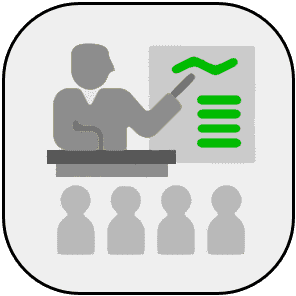Definition Intangible Assets?

Intangible Assets are non-physical assets. Common examples
of intangible assets include brands, reputation, copyrights, patents, trademarks,
trade secrets, know-how, goodwill. In accounting, intangibles are considered Non-current Assets.
Intangibles, intangible assets, knowledge assets and intellectual
capital are more or less synonyms. All are widely used – intangibles specifically
in the accounting literature, knowledge assets by economists and intellectual
capital predominantly in the management literature.
According to Baruch Lev there are three main “nexuses”
of sources of intangibles (often a particular intangible asset is created
by a combination of these sources):
Intangibles have special characteristics:
-
Upside, value-increasing characteristics:
-
Intangible assets are non-scarce. Deployment of an intangible
asset is possible at the same time in multiple uses.
-
Intangibles increase in value when used. This is also
referred to as scalability: intangibles value increases when the scale
in which they are used increases. Intangibles are not subject to diminishing
returns as are tangible assets, but have increasing returns.
-
Intangibles have strong network effects. Although not
exclusively applicable to intangibles, network effects are characteristic
for intangibles in the sense that intangibles often form the core of important
networks.
-
Intangibles create future value. All intangibles are future-oriented.
(Because of this they are traditionally ignored by traditional accounting
systems – conservatism concept, materiality concept).
-
Downside, value-decreasing characteristics:
-
Intangibles are difficult to manage and to exclusively
control.
-
Taking full advantage of the tacit knowledge residing
in employees is more difficult than exploiting the value of a building
or a machine to it’s maximum.
-
Copying or re-engineering of intellectual assets is
often relatively easy.
-
Limited ability to protect by property rights.
-
Cost accounting systems are not well geared towards
intangible assets and are even wholly inaccurate for managing intangible
assets-intensive corporations.
-
Intangibles cannot be owned (except legal property rights).
-
Intangibles investments are typically more risky. Due
to the fact that intangibles play the most dominant role in early stages
of the innovation process. Proper management can deal with this – i.e.
R&D alliances, diversified innovation project portfolios.
-
Intangible assets are nonphysical and therefore inherently
difficult to trade.
-
Legal protection is weak.
-
Large sunk costs, low marginal costs.
-
Open exchanges for intangibles are in their infancy.
-
Intangibles cannot directly be measured.
-
Valuing intangibles is difficult.
-
Intangibles are not evidenced by financial transactions
(as tangibles are).
Importance of Intangibles
Intangible assets or intellectual assets are particularly
relevant for the Economy as a whole, Organizations, Strategy, Finance, and
Accounting.
Intangibles have been around since the dawn of civilization.
Due to certain factors, including increased competition (globalization, deregulation)
and the advent of information technology (notably the internet), corporations
and the basis of competition amongst them has changed. This combination of
factors catapulted the relative significance of intangible assets in the eighties
and nineties of the 20th century compared to their tangible peers. Intangibles
are now the major value drivers of businesses in our modern economy.
-
In 1978, 5% of all assets were intangible.
-
In 1998, 72% of all assets were intangible.
-
Currently, 75-85% of all assets are intangible.
|
Forum about Intangible Assets.
|
|
|
Courses about Intangible Assets.

Beginners Course
|

Advanced Course
|

Course for Experts
|
|
|
|
The best, top-rated topics about Intangible Assets. Here you will find the most valuable ideas and practical suggestions.
|
|
|
Advanced insights about Intangible Assets. Here you will find professional advices by experts.

Consultancy Tips
|

Teaching Tips
|

Practical Implementation Tips
|
|
|
|
|
|
Various sources of information regarding Intangible Assets. Here you will find powerpoints, videos, news, etc. to use in your own lectures and workshops.

|
Management Accounting of Intangible Assets Intangible Assets, Intellectual Capital Measurement
This presentation provides information about intangible assets and the effective management/accounting of these assets. ...
|

|
Managing Intangible Assets in Higher Education Intellectual Capital, Higher Education, Higher Education
1. Agenda
2. Growing Importance of Intangible Assets
3. Necessity to Actively Manage IPR
4. Research on Intangible As...
|

|
Knowledge Management, Organizational Learning and Intellectual Capital Intellectual Capital, Knowledge Management, Organizational Learning
Presentation about organizational knowledge, learning and intellectual capital. The presentation includes the following ...
|

|
Accounting for Intangible Assets Accounting of Intangibles, Valuation of Intangibles, Controlling, Intangible Assets
Presentation about Intangible Assets and How to Measure, Manage and Account for Intangible Assets. The presentation incl...
|

|
USGAAP versus IFRS on Intangibles Accounting Intangible Assets, Accounting, USGAAP, IFRS
This presentation compares USGAAP and IFRS, and includes the following sections:
1. Presentation Overview
2. Executive...
|

|
Business Combinations, Intangibles and Goodwill Intangible Assets, Business Acquisitions, Accounting Treatment, Goodwill
Presentation about Business acquisitions and the management of intangibles, with a special emphasis on goodwill. The pre...
|

|
Introduction and Summary of Intangible Assets (IAS38) Initial Understanding of Intangible Assets, Accounting Treatment
Accounting treatment of intangible assets:
- Identifiable (seperable, legal right)
- Non-monetary Assets (non-cash)
-...
|
|
|
|
Useful tools regarding Intangible Assets.

News
|

Videos
|

Presentations
|
| |

Books
|

Academic
|

More
|
|
|
|
Compare also: Edvinsson’s
Skandia Navigator |
Sveiby’s Intangible Assets Monitor |
M'Pherson's Inclusive Value Measurement
| IC Rating |
Amortization |
Tangible Assets |
Tacit Knowledge |
Relational Capital
| Social Capital
| Tertiary Sector
| Sustainable
Competitive Advantage
|
|
|


